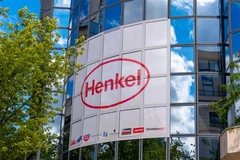Dow Partners with World Economic Forum and governments on tackling plastic waste

03 Oct 2018 --- The Dow Chemical Company (Dow) is investing in a new partnership coined Global Plastic Action Partnership (GPAP) mobilized by the World Economic Forum to bring business, civil society, national and local governments, community groups and world-class experts together to collaborate on solving plastic pollution.
“What makes this collaboration unique is the focus on public-private partnership to drive the development of a circular economy for plastics. Governments are key partners in enabling the creation of an infrastructure for plastic waste management, and private industry brings technological solutions to the table,” Mike Witt, Dow Corporate Director of Plastics Circular Economy tells PackagingInsights.
The GPAP will translate ambitious commitments into local action and show how business, communities and government can redesign the global “take-make-dispose” economy as a circular one.

“The GPAP aims to have investable localized solutions in place by 2020, which can then be adapted and implemented in other countries. GPAP’s first collaboration will be with the Government of Indonesia, which is suffering a crisis of plastic waste and the government has a national plan to reduce it by 70 percent over the next seven years. The partnership will announce collaborations in two other coastal nations (one in West Africa and a small island developing state) in the coming months. These three proof-of-concept projects will coincide with the UN’s next landmark ocean conference,” adds Witt.
GPAP’s first project will be in Indonesia
GPAP’s first collaboration will be with the Government of Indonesia. The world’s largest archipelago is suffering a crisis of plastic waste, and the government has a national plan to reduce it by 70 percent over the next seven years.
The GPAP aims to have investable localized solutions in place by 2020, which can then be adapted and implemented in other countries.
“Through this partnership, we will identify specific regional partners to help drive the multi-stakeholder platform that will identify key projects, in addition to creating the structure and financial models necessary to run the program. This partnership is also expected to develop innovative solutions that will, in turn, have applicability in other areas of the world,” says Witt.
GPAP aims to complement and build on the momentum of other partnerships, collaborations, and efforts of businesses, entrepreneurs, governments, non-profit organizations and scientists who are doing critical – and often unheralded – work to eliminate plastic pollution in our land, rivers and seas. It also follows major commitments by world leaders.











